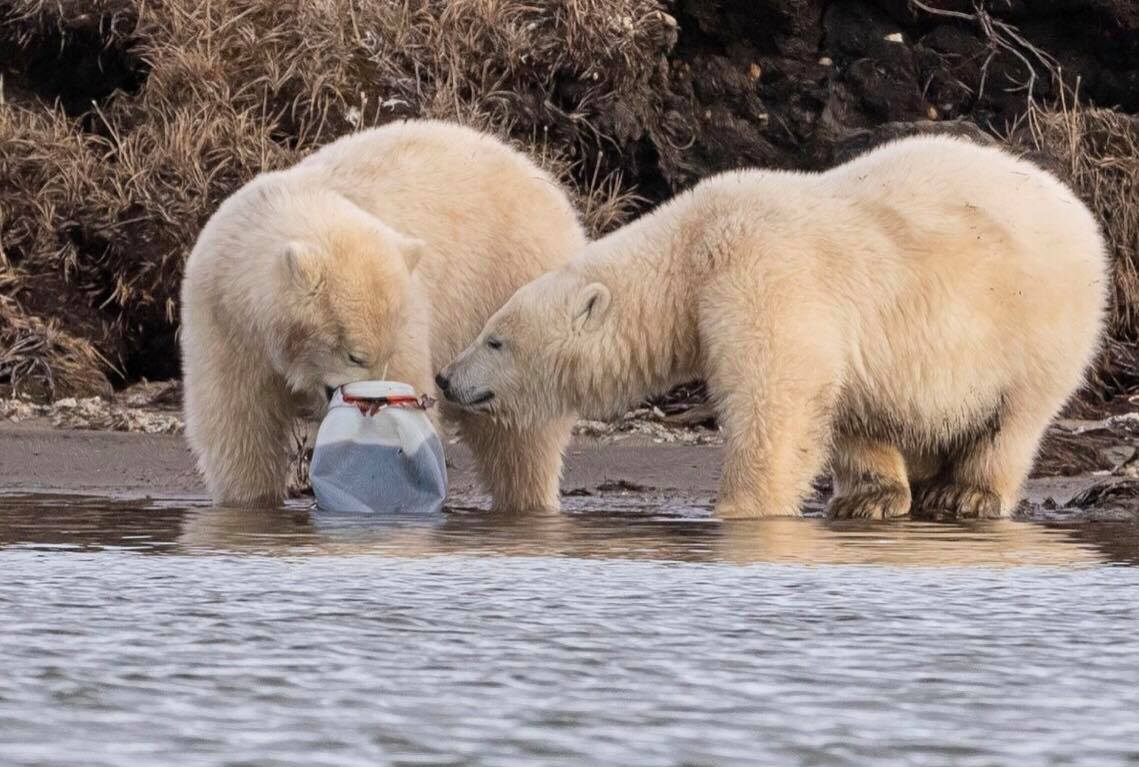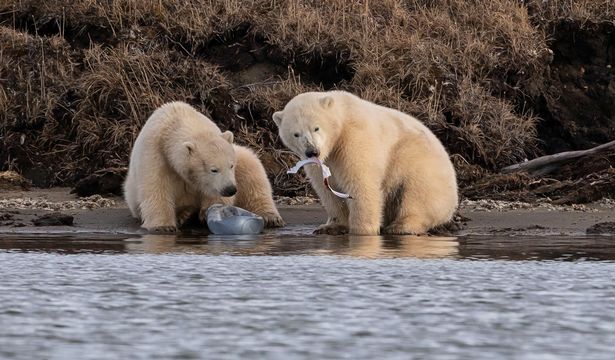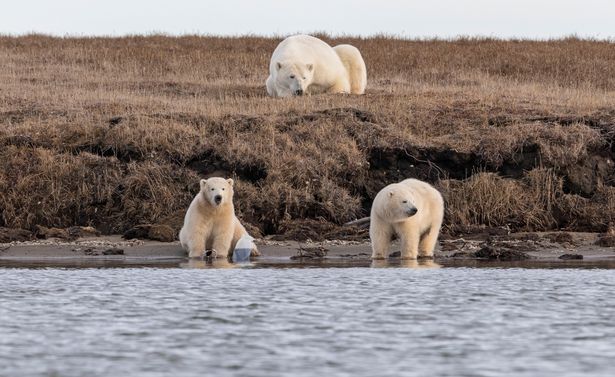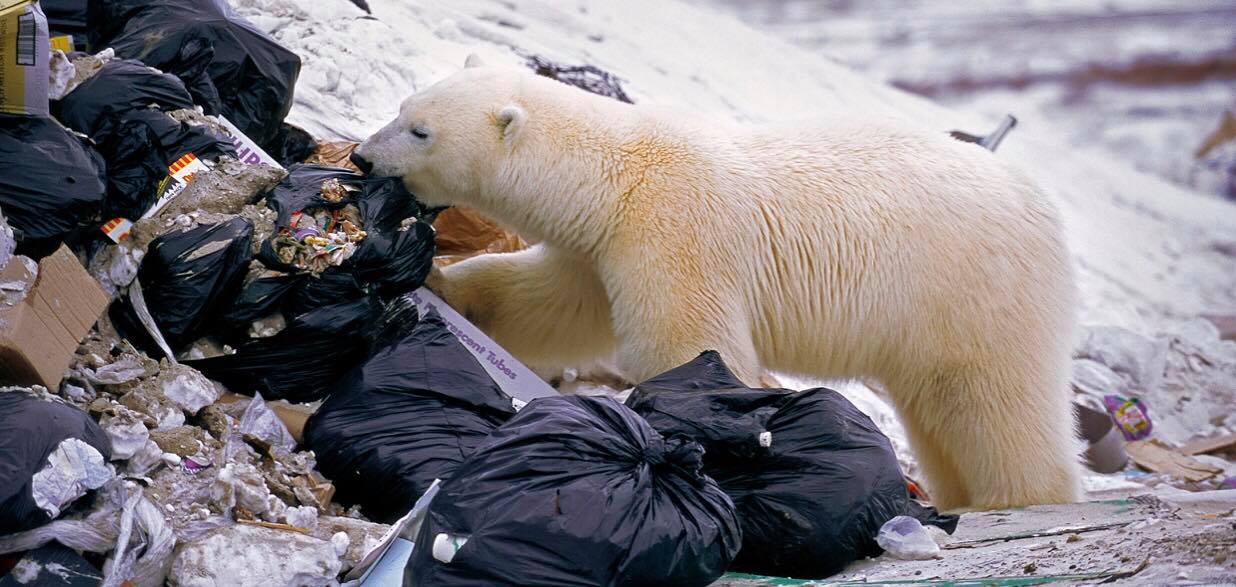Polar Bears have a Plastic Problem and it is Devastating!
Two polar bear cubs in a remote area of Alaska fight over plastic in a bid to fend off starvation. The horrifying images have emerged after photographer Danny Sullivan captured the cubs battling over the plastic debris as they grow increasingly hungry awaiting the winter's sea ice.
(Image: Mediadrumimages/DannySullivan)
The shocking include a cub getting its nose stuck inside the gallon milk jug, while the two furry siblings playing tug of war with the plastic debris, and another reveals the infant bear gnawing on the plastic packaging. These distressing images show the very real effect that plastic pollution and climate change are having on local wildlife.
"The shots were taken in early October, in previous years that whole area would have been five foot under by then," said Los Angelas based photographer Danny Sullivan.
"They wouldn't have had a chance to get to the plastic, it would've been buried. It was a good five degrees warmer than it should have been so the ice was actually starting to form at the end of the month, rather than the start.
"It shortens the window for the polar bears' hunting season so it's sure to have a knock on effect soon enough.
(Image: Mediadrumimages/DannySullivan)
The images were captured in October 2019, when photographer Sullivan visited Katovik. He went on to say;
"That's not really the point though the plastic shouldn't have been there in the first place.
"What was a plastic gallon jug doing out here in far-flung Alaska? It just goes to show that what we're doing is having an effect everywhere.
"Plastic floats. This could've come from anywhere and now there's every chance one of these young bears has ingested it."
Image: Mediadrumimages/DannySullivan
Earlier in the year, 52 polar bears descended upon Belushya Guba, Russia, causing the small military settlement in the Novaya Zemlya archipelago to declare a state of emergency.
Dubbed the "polar bear takeover", conservation authorities rejected a request from the settlement to shoot the bears, which are protected in Russia as an endangered species. However, children in the 2,000 people settlement had to be watched closely and driven home from School.
Polar bears have been forced to scavenge for food on land as climate change reduces sea-ice habitats in the Arctic Ocean. The animals have increasingly come into contact with humans, and images of them wandering into cities in Siberia and rummaging through garbage in the Russian Arctic made international headlines this year.
Feeding at a landfill is full of immediate threats for polar bears—like one in Churchill, Manitoba, that ate a sharp tin can. But researchers are finding the accumulation of plastic in polar bears’ stomachs can cause problems, too. Photo by Eric Baccega/NPL/Minden Pictures
The increasing contact with human settlements has allowed scientists to examine the gut and excrement contents of polar bears that eat out of garbage dumps, and they have found that when polar bears visit landfills, up to 25% of their scat is made up of various plastic waste: bags, wrappers, etc
According to scientists in Russia, plastic waste makes up one-quarter of polar bears’ diet as climate change pushes them closer to human settlements, posing a mortal threat to animals who ingest it.
© Ocean Research & Conservation Ireland (ORCireland) and www.orcireland.ie , est. 2017. If you like our blogs on the latest news in marine science and would like to support our work, visit www.orcireland.ie to become a member, to volunteer or to make a donation today.
SHARE THIS ARTICLE

















